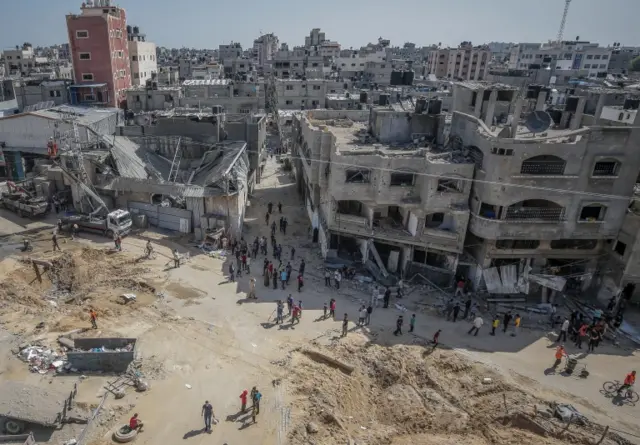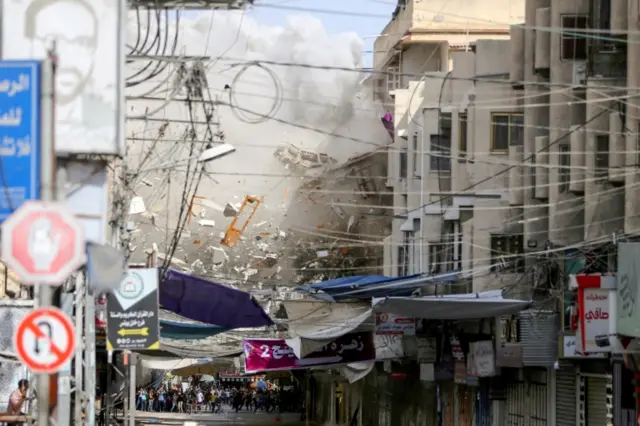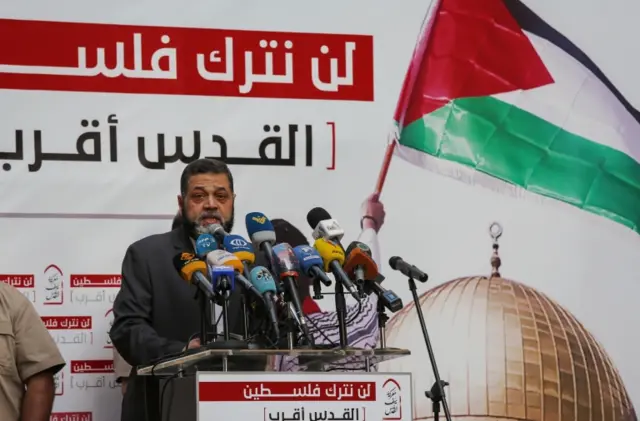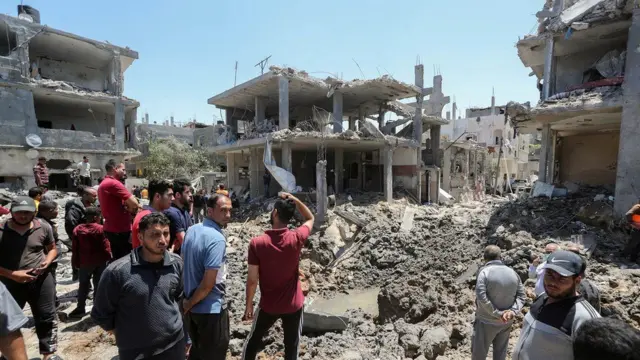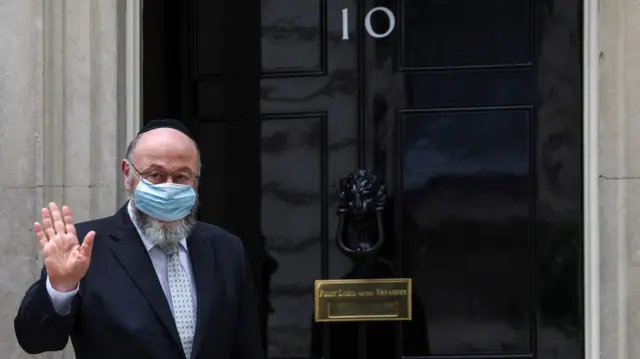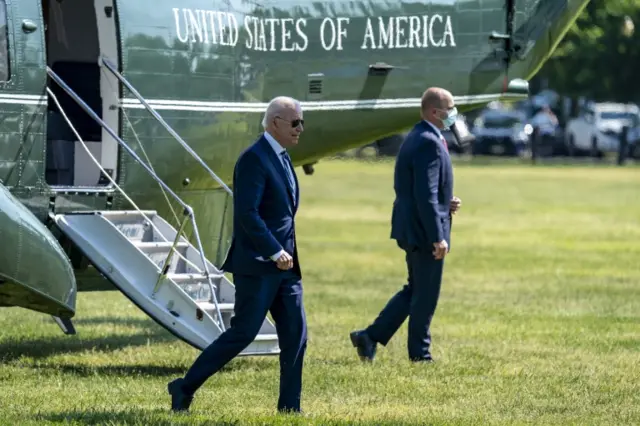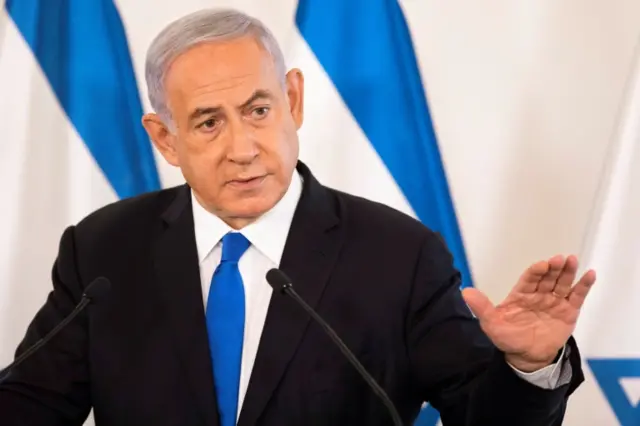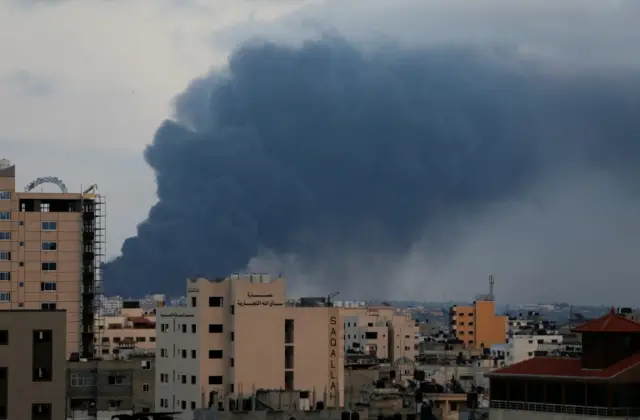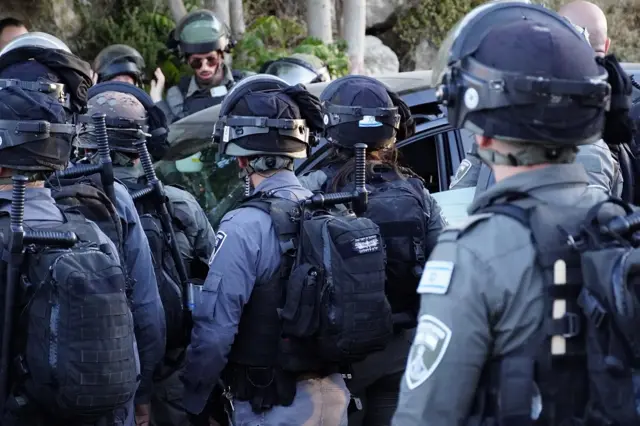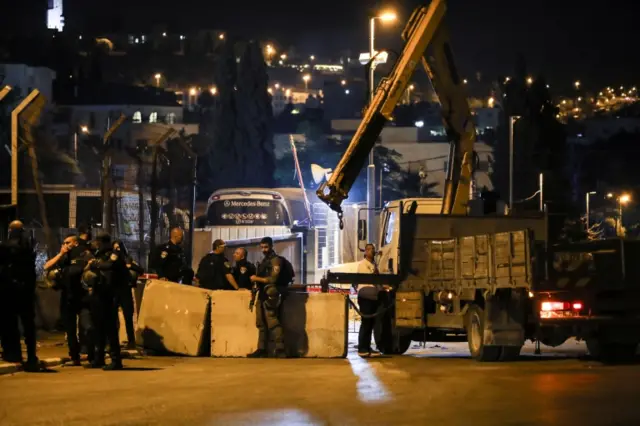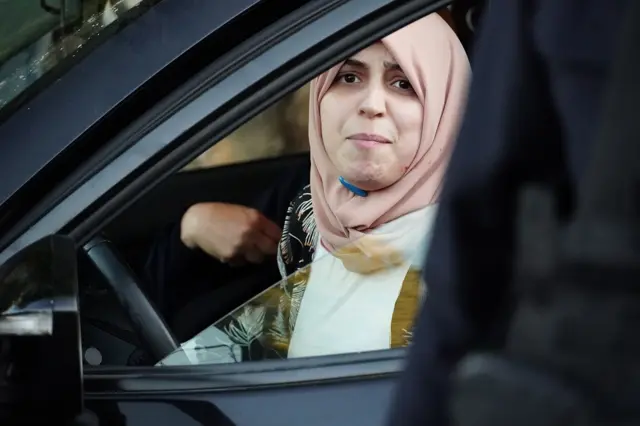Israeli ceasefire statement in fullpublished at 20:50 BST 20 May 2021
Here is the full statement from the Israeli security cabinet confirming the ceasefire decision:
"The Security Cabinet convened tonight.
"The Political Security Cabinet unanimously accepted the recommendation of all security officials, the chief of staff, the head of the Shin Bet [internal security agency], the head of the Mossad [foreign intelligence] and the head of the National Security Council, to accept the Egyptian initiative for a bilateral unconditional ceasefire, which will take effect at a later date.
"The chief of staff, the military echelon and the head of the GSS reviewed before the ministers Israel's great achievements in the campaign, some of which were unprecedented.
"The political echelon emphasizes that the reality on the ground will determine the continuation of the campaign."
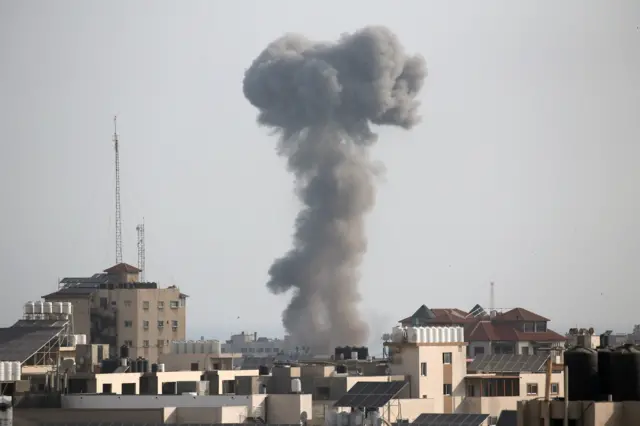 Image source, Reuters
Image source, ReutersScenes like this in Gaza have been commonplace in the past 11 days

